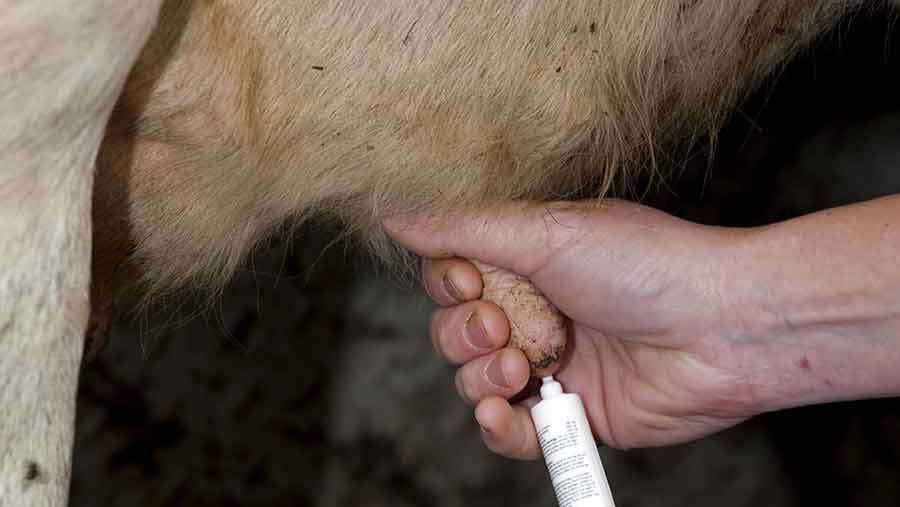2020 target to stop using critically important antibiotics
 © FLPA/Rex/Shutterstock
© FLPA/Rex/Shutterstock Dairy farmers and vets should aim to stop using critically important antibiotics (CIAs) in herds by 2020 in order to prevent the increase in antimicrobial resistance, according to a leading vet.
David Barrett, Professor of bovine medicine, production and reproduction at the University of Bristol, says it is possible to stop the use of CIAs in herds, without having an impact on production.
A study at Bristol University’s farm animal vet practice found that by implementing a health plan and using it to continually refine and improve cow health and medicine use, they were able to rapidly phase out the use of CIAs on dairy farms.
CIAs include fluoroquinolones and third and fourth generation cephalosporins.
See also: Doctors call for ban on farm antibiotics
Cephalosporins are often used in dairy herds for treatment of mastitis and other diseases, due to zero milk withdrawal. However, they are categorised as CIAs by the World Health Organisation as they are most important to human health.
At Bristol University, they were able to reduce lameness and clinical mastitis and increase milk yield and improve fertility, while at the same time removing the need for CIAs, explained Prof Barrett at the British Society of Animal Science Conference last week.
Health planning
“At the university veterinary practice, colleagues worked towards phasing out CIAs by really engaging with health planning and monitoring the herds closely,” said Prof Barrett.
“We were able to phase them out across the practice in 3-4 years and animal health and productivity has improved.
“This does not mean we are calling for a ban on the use of these medicines, they should be available to use in exceptional circumstances if laboratory tests show that no other suitable medicine is available, however, there are very few examples where this would be the case,” he said.
Prof Barrett warned that if this wasn’t achieved then we could see legislation implemented to restrict their use. “We currently have a carrot approach, but if we don’t react we will see legislation. Politicians have this in their sight,” he warned.
Prof Barrett stressed the need for dairy farms to remain profitable and there were three things that farmers should focus on:
- Employ optimised husbandry systems
- Don’t rely on prophylactic use of antimicrobials i.e. in footbaths
- Do not use CIAs
“Just understanding basic things such as the weight of an animal to make sure you are treating animals with the right dose is important,” Prof Barrett said.
He highlighted trials where in many cases farmers and vets underestimated the weight of larger animals and overestimated the weight of smaller animals, such as calves. “This means you could be under or over dosing,” he said.
He also drew attention to inappropriate practices often seen on farms such as the feeding of waste milk to calves.
“Every effort should be made to reduce overall antibiotic use and phase out altogether the use of CIAs. Farmers must work closely with their vets to achieve this, not only is it the right thing to do, but herd health and productivity can be improved,” he said.
